|
Music Studio |
|
In the previous post, I touched on the complicated subject of copyright law for music in general terms. Here, I’ll address how these laws are practiced specifically for the music that I perform, record, and distribute at Pedal Point Sound – my home music studio. As of 1 January 2021, any musical composition published in the U.S. with a valid Copyright Notice of 1925 or earlier is in the Public Domain in the USA, i.e., the 95-year term of the copyright protection has expired. This provision also generally holds for a musical composition published outside the U.S. by foreign nationals. (It is interesting to note that for works published after 1978, the term of copyright protection is generally changed to 70 years after the composer’s death.) Copyright law for a sound recording (separate from the copyright protection of the underlying composition) is even more complicated by U.S. and international regulations! Essentially, NO copyrighted sound recordings have yet been released to the Public Domain in the USA. A good summary table of copyright protection duration, updated and published by Peter B. Hirtle at the Cornell Copyright Information Center, can be found at the web page Copyright Term and the Public Domain in the United States At Pedal Point Sound, the musical pieces that I select, arrange, and record come from the “classical” piano and church organ music repertoires and from traditional/folk songs. In most cases, I work from music compositions that are in the public domain. Some of the public domain issues for each of the genres of music I record are given below. 1. Classical Music These are works composed by the masters such as Bach, Handel, Mozart, Beethoven, Chopin, Schumann, and Brahms from the years 1700 – 1900. These musical pieces were originally published “way back then” , and are clearly in the public domain now. BUT – the big caveat – many of these works have been reprinted in new ‘editions’ that are edited, arranged, and copyrighted by the big music publishing houses. So technically, you cannot use these editions to perform and record your music if you want to claim that the music is in the public domain. Instead, you need to research the source of your music and obtain versions that ARE in the public domain. There are a number of resources on the web to help you do this, including: International Music Score Library Project https://imslp.org Musopen https://musopen.org/sheetmusic/ Musicnotes https://www.musicnotes.com/now/omg/the-best-public-domain-sheet-music/ As an example, the Robert Schumann Scenes from Childhood, Op. 15 piano pieces, composed in 1838, are available in a 1945 copyrighted version from G. Schirmer, Inc. : After a brief search, I obtained the following Schumann Op. 15 music score which was published in 1880 by the Leipzig music house Breitkopf & Hartel : 2. Church Music My musical interests in this genre are in the wonderful old church hymns and in the sacred works composed for pipe organ. Once again, these “old” works are generally in the public domain, provided that you obtain music that proves this. Here are two excellent sources of available church hymns: Public Domain Hymns https://pdhymns.com Hymnary.org (Calvin University) https://hymnary.org Here’s an example of the public domain hymn, Abide with Me : 3. Traditional / Folk Song In a current project, I’m arranging and recording a collection of traditional Scottish songs. The tunes themselves are in the public domain, but the available music scores are usually copyrighted arrangements of the songs. But as before, it is possible to find public domain music scores for things like traditional, folk, holiday, children’s, and popular songs. A good source for obtaining proof of public domain music is: Public Domain Information Project https://www.pdinfo.com/public-domain-music-list.php As an example, I am making my own arrangement of the Skye Boat Song. I ordered (cheaply!) the following score from the Public Domain Information Project : With this public domain music in hand, I can work freely to arrange and record my own version of this traditional Scottish song. Next time, I’ll talk about licensing rights to perform and record music that is currently under copyright protection.
|
Categories
All
Archives
May 2023
|
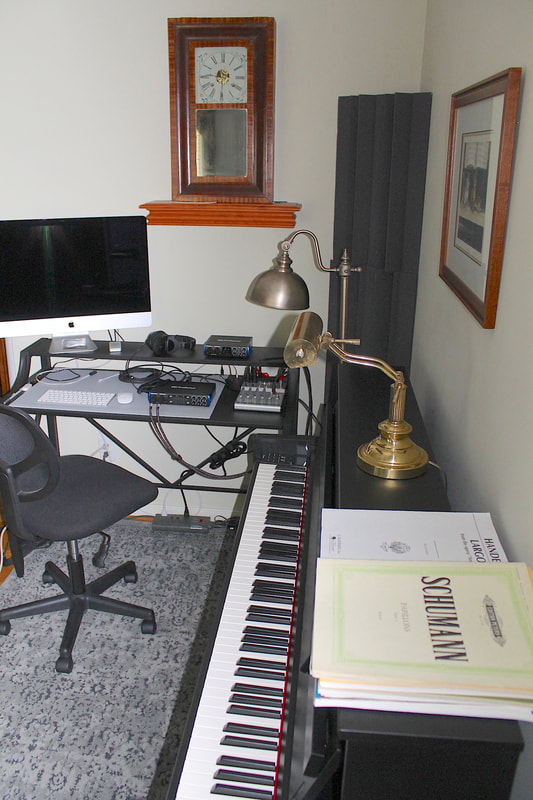

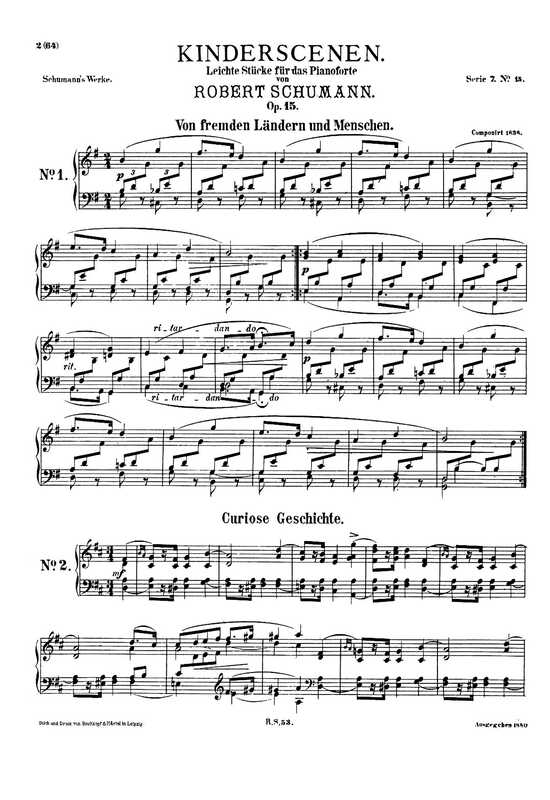
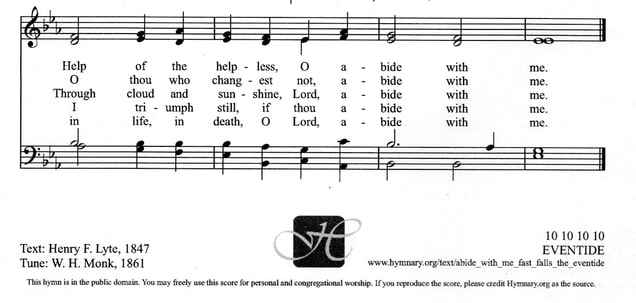
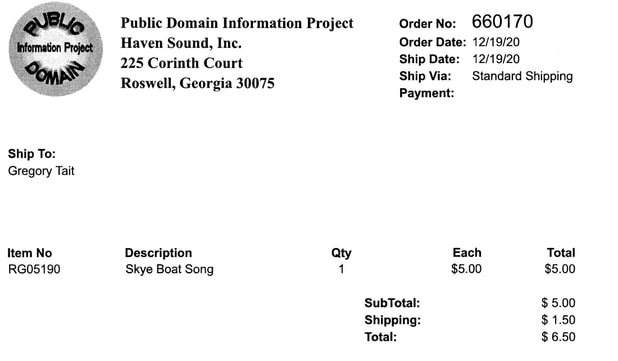

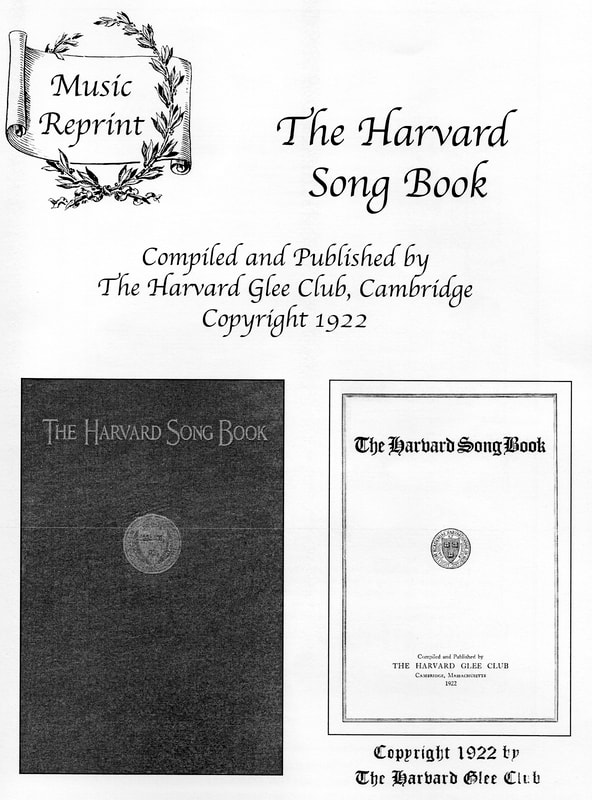
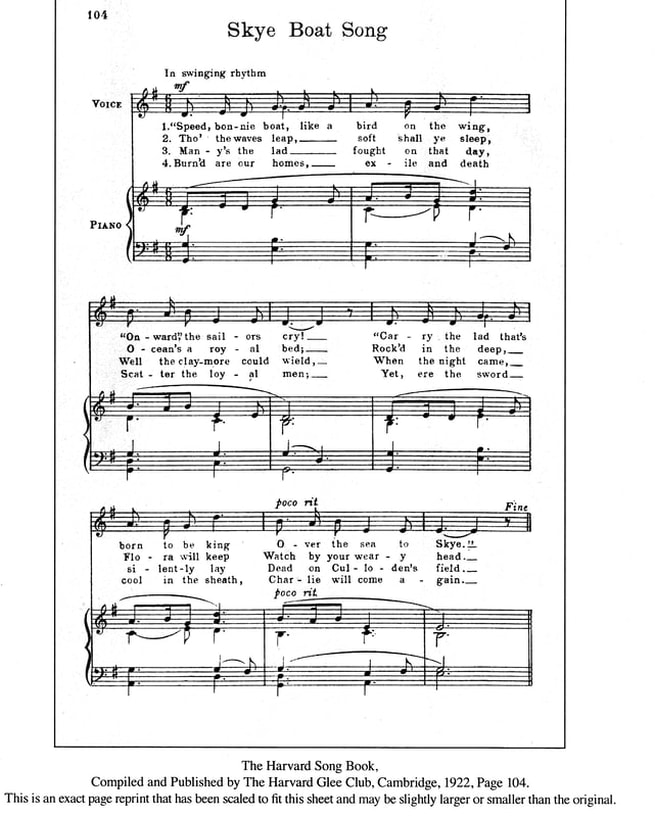
 RSS Feed
RSS Feed
